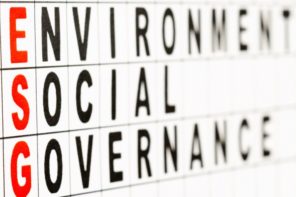In the face of huge global challenges, what role does leadership and the world of business play? What areas should leaders be engaged in and thinking about? We explore how leaders can make more of an impact for their organisation and for the wider world.
The world is facing various massive global challenges that require management action from leaders across all organisations, from COVID pandemic to the climate emergency, biodiversity collapse, and #BlackLivesMatter.
We tend to think that these kinds of challenges are for governments to deal with, and they are, but not alone. Increasingly citizens – both as customers and employees – expect businesses to be playing a leadership role on tackling global challenges too.
At the height of the pandemic, Apple announced its intention to be entirely carbon neutral by 2030 – including emissions from across its supply chain and product life cycle, with implications for all companies seeking to be suppliers to Apple. Unilever has goals to for its supply chain to be deforestation free, and for its products to help a billion people improve their health and wellbeing. More and more businesses are engaging in human rights due diligence across their value chain.
As public expectations grow, and more and more organisations get engaged, all this has implications for leaders at all levels across organisations. Through our research, we’ve identified three areas where leaders need to be thinking and acting differently:
Thinking differently about your leadership role
First is to start thinking differently about what counts as a leader’s day job. Taking action on climate, pollution, diversity, inclusion, human rights issues in your supply chain – all this is now a core part of a leader’s role. Acting in these areas is core to creating and protecting value for the organisation.
This means leaders cannot afford to be uninformed – they need to learn about these global challenges, and how and where they should be intervening.
Leading change in the organisation around you
Second is the role leaders play in leading change in the organisation around you through the language they use and the example they set. They influence people through how they articulate the purpose of the work everyone is involved in, and the kinds of goals they have set.
What do leaders speak up about, even if risky? What are leaders seen to ask questions about? What are they seen to prioritise?
All these leadership actions are important steps they can take to encourage others to lead on global challenges around them.
Leading change in the wider ecosystem around the organisation
Increasingly, leaders have a role in the wider ecosystem around their organisation too.
That leadership role extends to leading behaviour change amongst customers, persuading suppliers to do things differently, and other partner organisations involved in the same sphere or ‘ecosystem’ as your own.
To be able to play these aspects of their leadership role well, they need to be able to engage well with multiple different stakeholder groups, be able to contribute to public and political debate with an informed point of view, and to engage in partnerships with unconventional partners.

Matthew Gitsham Professor of Business and Sustainable Development at Hult EF Corporate Education
HULT/EF ti aspetta al 51° Congresso Nazionale AIDP, il 7 e 8 ottobre a Bologna!
Verso Nuovi Paradigmi
Inclusione, digitale, sostenibilità, organizzazioni ibride
https://congresso.aidp.it/index-2022.php
Questo Articolo è stato letto da 2111 persone




















